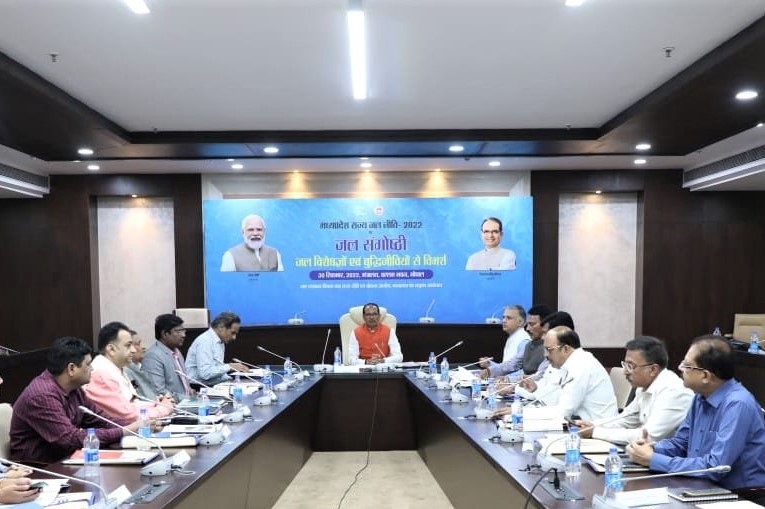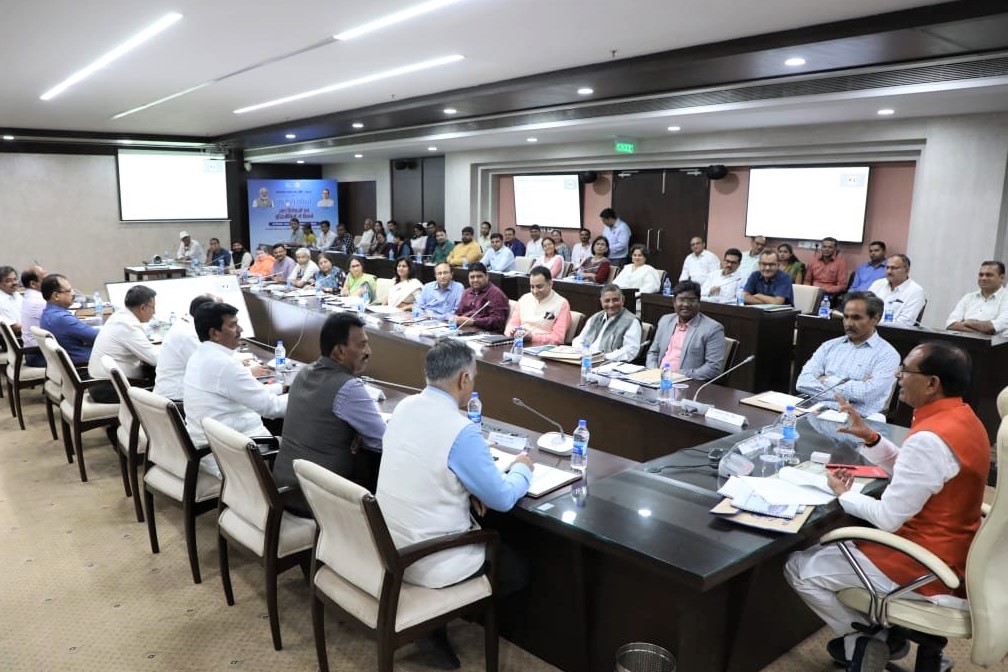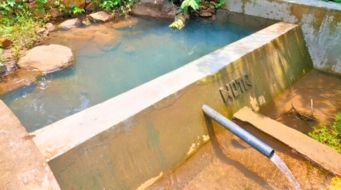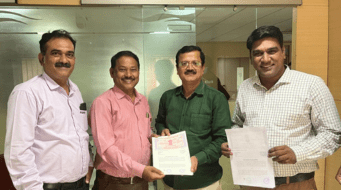by Rutuja Chavan
On 30th September 2022, WOTR participated in a one-day conclave convened by the Madhya Pradesh (MP) State Policy & Planning Commission to invite suggestions to modify the State Water Policy at the Mantralaya in Bhopal. Dr Eshwer Kale, representing WOTR, suggested strengthening water stewardship, implementing the water governance standard to incentivise different actors, adopting aquifer-based water management, and incorporating an ecosystem-based adaptation approach.
Dr. Kale also highlighted the need for an independent water resource regulatory authority, a forum for promoting water literacy in the state, and the need for protecting rainfed agriculture as well as the system of locale-specific agro-advisories and weather predictions for farmers to make informed decisions. In the background of adverse impacts of a growing number of plastic-lined and groundwater-lifted farm ponds, practices of unscientific desiltation of water bodies/tanks, and deepening, widening, and straightening of rivers in Maharashtra, Dr. Kale pointed out the need of taking caution with preventive measures to avoid the potential ill effects of these interventions in the state
The Conclave was chaired by Honourable Chief Minister, Shri Shivraj Singh Chauhan, in presence of his Ministers Shri Tulasi Silawat, Minister of Water Resources, and Shri Bharat Singh Kushwah, Minister of Horticulture and Food processing. The overall conclave was facilitated by Shri S.N. Mishra, Additional Chief Secretary of WRD, and Shri Sachin Chaturvedi, vice-president of Madhya Pradesh NITI Aayog. Along with other reputed Non Profits and senior water experts, many high-level government officers from the relevant departments participated in the conclave.

What is Water Stewardship, Water Governance and Aquifer based Management?
Water stewardship is a multi-stakeholder collaborative that ensures sustainable water management at the village level. The approach contributes to national and international climate change goals. The management of water in this approach happens at micro and macro levels, ensuring conservation and management of water by various relevant stakeholders. Collective action for water governance implies coordination between the social, economic, political, and administrative systems that influence the use and management of water. It works towards fair allocation of water resources to all stakeholders, thereby boosting sustainable and equitable growth. An aquifer-based water management process, gives participants a sense of ownership over their water sources. When everyone agrees on participatory and inclusive efforts for holistic groundwater management, it’s easier to collectively manage the local water resources.
More about Aquifer based management
What is an Ecosystem-based Adaptation approach?
The United Nations Convention on Biological Diversity (CBD) in 2009 defined Ecosystem-based Adaptation as “the use of biodiversity and ecosystem services as part of an overall adaptation strategy to help people and communities adapt to the negative effects of climate change at local, national, regional and global levels.”
It is an ecosystem and human-centric approach where none of the two are neglected and both are benefited. Read more about this adaptive approach to Climate Change here
MP’s State Water Policy
MP has been water-stressed since 2011, with an annual per capita water availability of 1611 cubic metres. By 2031, this is anticipated to drop to 1244 cubic metres per person, assuming constant annual water availability. There is a risk that by 2050, the state will experience a severe water shortage due to this trend (PIB, GoI, 2020).
MP’s current water policy, the State Water Policy 2003, is coherent with India’s National Water Policy of 2002. Since then ,however, the nation has undergone significant changes that have indiscriminately strained the water sources. Rain, groundwater, and surface water bodies like seasonal rivers and lakes are the three main sources of water for MP.

The draft of the Madhya Pradesh State Water Policy June 2022 aims to ensure equitable water distribution while also ensuring the resilience of the water resource system to climate change-induced impacts.
After analysing the rainfall, water resources, and usage for various purposes, the State has prioritised its water allocation for policy recommendations as follows:
- Drinking water, sanitation, and other domestic needs
- Minimum ecological needs
- Agriculture/Irrigation
- Hydropower generation
- Economic activities, industrial use, and tourism
- Other uses
The draft is an important step towards ensuring that MP helps India reach its goal of a 5 trillion economy while maintaining environmental sustainability.
Read about WOTR’s work in MP here





